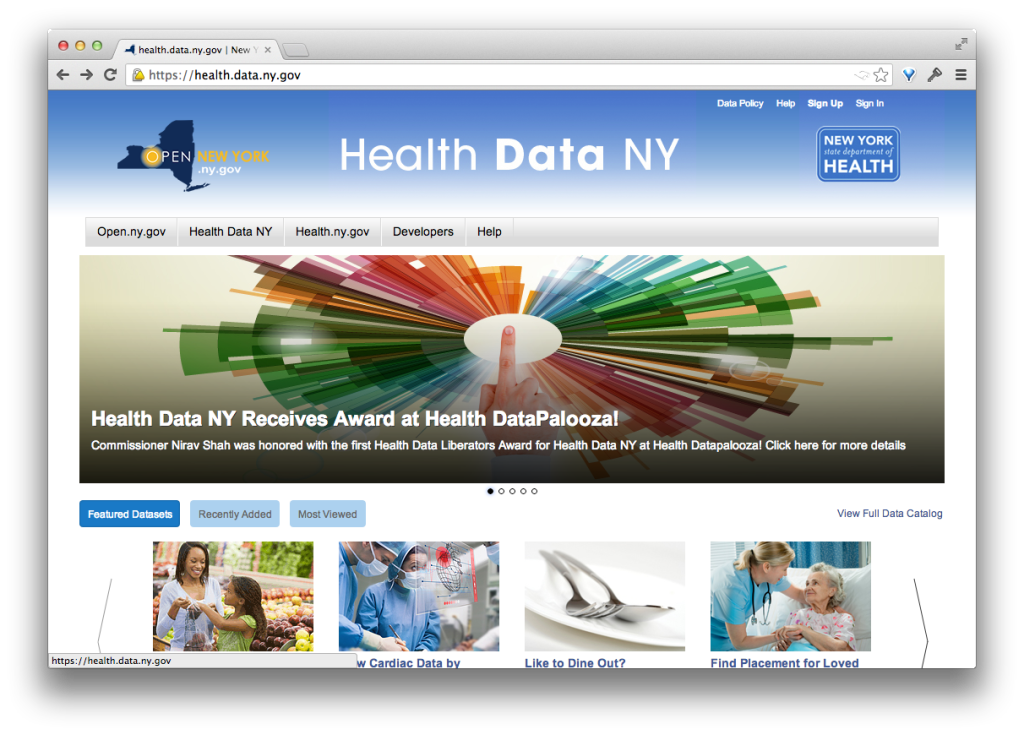Surge in Health Data Innovation: $2M Data Challenge and Leading Role for NYS
In August, the Knight Foundation announced a health innovation challenge, with the winners splitting $2 million in prizes for proposing the best ways to use open data related to public health. Yesterday, the contest officially began, with Knight now accepting submissions. Fittingly, New York’s award winning health commissioner and open data maven Nirav Shah MD was on hand at a Knight event in New York City to help launch the nationwide contest. Shah and his NYS Department of Health are clear national leaders in efforts to open up and maximize the value of government health data, and have helped bring together 19 leading states in an effort to spur new data and reporting standards.
The press release from the original announcement is below. See the current entries here.
The Knight Foundation have teamed with Robert Wood Johnson Foundation, California HealthCare Foundation, Clinton Foundation and Health Data Consortium for a health innovation challenge offering $2 million for innovative use of health data.
The News Challenge launching on August 19th will call on innovators to answer the question: How might we harness data and information for the health of communities? Some of the ideal types of innovative ideas include:
- Ideas that make large public datasets useful, e.g. Open Data Institute in the United Kingdom, which helped identify unnecessary spending on name-brand drugs instead of generics;
- Ideas that help inform healthcare consumers, e.g. a ProPublica app that shows how much individual doctors have been paid by pharmaceutical companies; or goodrx.com, which tracks prescription drug prices nationwide and provides savings;
- Ideas that leverage personal behavioral data, social media data and/or public data to inform lifestyle choices, e.g. the LIVES restaurant inspection score app; nextstep.io which mashes up fitness data with ambient data; andAsthmapolis, a mashup of data on asthma triggers, such as weather and pollen, with user symptoms; and
- Ideas that inform local health policy, e.g. the County Health Calculator, which uses statistical data to determine how factors outside the health care system, such as education and income, affect our health.
The challenge will begin with an opening “inspiration” phase when anyone can identify needs, share success stories, post data sets and contribute ideas. Afterwards, the challenge will be open for entries September 3rdthrough the 17th.

